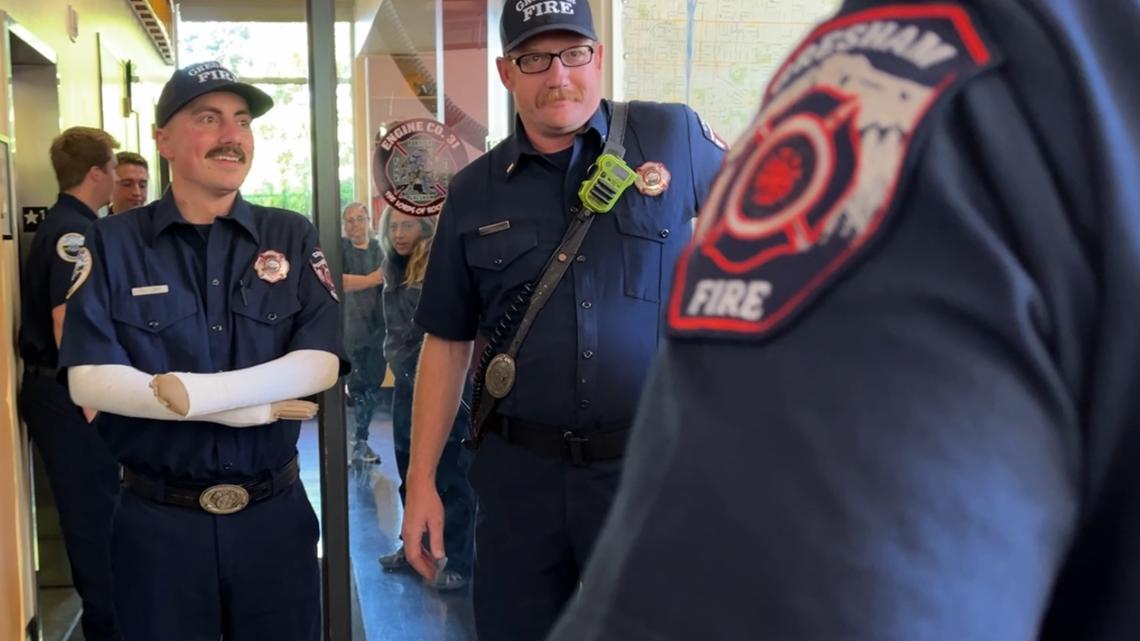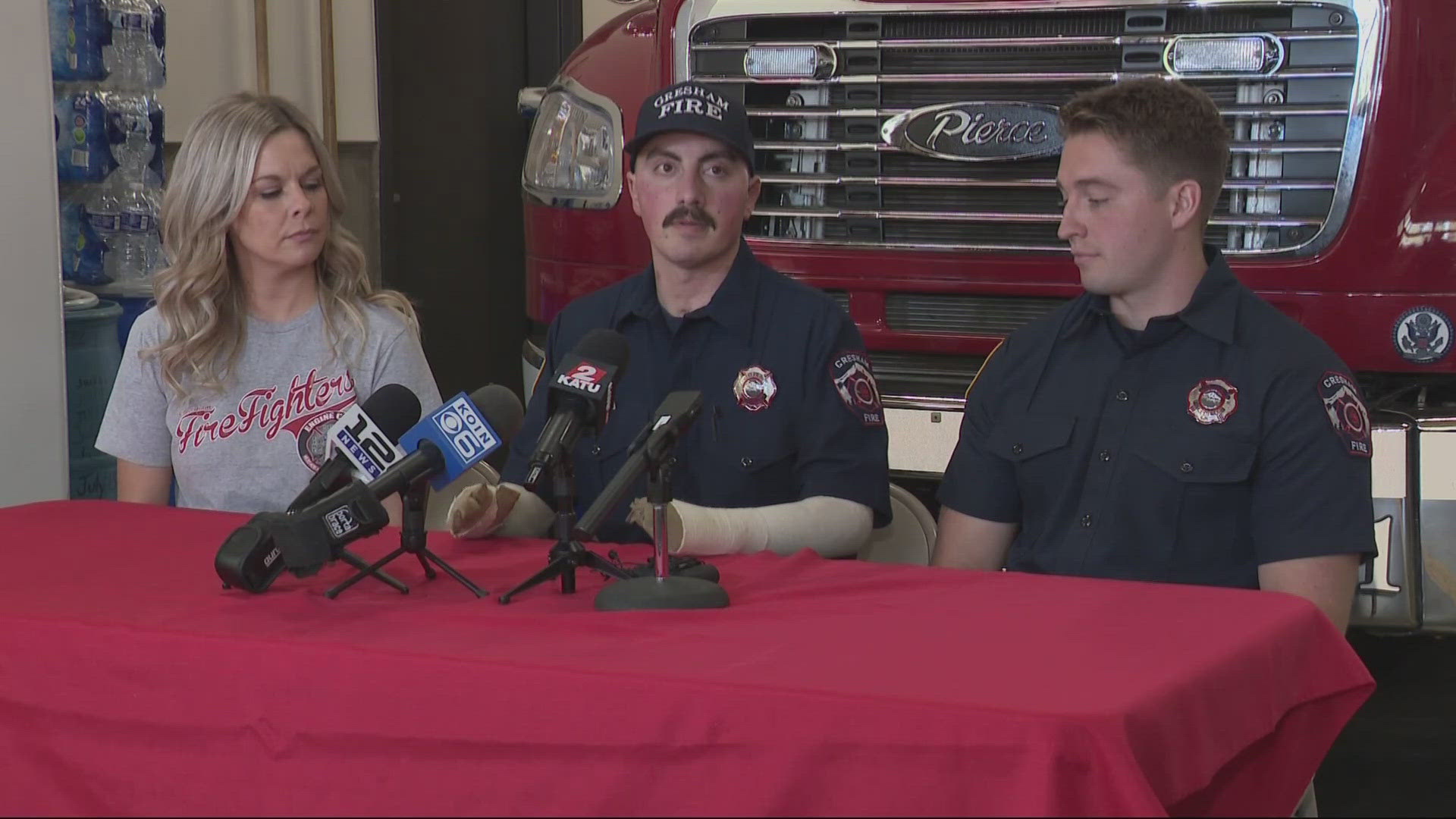GRESHAM, Ore. — What began as any normal day — May 30, 2024 — will forever live in Spencer Tejedas' mind.
He was eating dinner, sitting in a chair and relaxing with other firefighters playing a game of chess on his phone, he said. It had been like any other day, one full of calls and emergencies.
And just like that, dispatch sounded the alarm one more time. A house was on fire just minutes from the station, and Tejedas and other Gresham firefighters raced to respond.
"Dispatch came in that there was a potential for a victim. That just kind of sets everybody in a different mindset going into it," Tejedas said.
When Tejedas and fellow Gresham firefighter Jack Pilarski first arrived, they could see smoke and fire coming from the home. Tejedas said nothing seemed out of the ordinary; so far, it looked like most other house fires he had responded to.
Tejedas then heard a woman crying that her child might be inside.
"I just remember in my brain, it just kind of kicked into another gear," he said. "I knew we were gonna go into rescue mode."


Tejedas jumped into action. Wearing his department-issued personal protective equipment, he ran inside alone and performed a first search. He recalled that the smoke was up to his neck, the flames were in the ceiling, and he could see fire coming from a bathroom.
He went back outside, and instead of waiting for a hose line to tamp down the flames, he chose to risk his own safety for the life of another.
"I felt like the risk we were about to take and the reward of potentially saving somebody outweighed us waiting around a hose line," Tejedas said.
With Pilarski near him, they went through the front door, keeping a hand on the wall so they didn't lose their way. Pilarski was told to check a bedroom, and Tejedas continued down the hall searching for any sign of someone inside.
"All of a sudden, this unsettling feeling in my stomach and just the heat overall overcame me, and on the back of my neck, I just knew it was bad," Tejedas said. "The last thing I remember is him coming towards me — and then, just fire."
Fueled by oxygen, the firefighters were caught in a flash over.
"Everything just goes orange, you can't see anything," Pilarski told reporters.
Pilarski escaped with minor injuries.
"Got away from the wall, that's where things got worse," Tejedas said. He had been severely burned and would later learn that 45% of his body had suffered severe burns.
He was rushed to the emergency room and would spend the next three months in the intensive care unit at Oregon's burn center.
"There were definitely moments we thought we were going to lose him while he was in the hospital," Tejedas' wife Melea said. The pair had been sitting at a table inside Station 31 with Pilarski moments before dispatch called about the fire.
"For so long, he had a trach and he wasn't able to talk and so he would mouth things and that was a really hard period of time," she said.
Tejedas would be brought in and out of sedation over the course of his stay at hospital.
He remembers seeing his two sons, 4 year-old William and 1 year-old Charlie, for the first time: "They came running around the corner, and I couldn't believe my 4-year-old William; he looked more like a kid than a toddler. His voice sounded different, and same thing with my 1-year-old Charlie. He was running towards me, taller."
In early September, Tejedas walked out to a chorus of cheers from fellow firefighters and first responders. He was out of the hospital and would spend the next couple weeks at a rehab facility. In late September, he went home for the first time since the fire.
"Doing a lot better since I got home," Tejedas said. "This is day six."
He's adjusting to life with limitations, but isn't letting it slow him down.
"Frustrating, finding out things I can and can't do," he said. "But rewarding. I get to be with my kids everyday."
Tejedas says his arms, hands and legs took the worst of the burns: "All four fingers on my left hand had to be amputated, as well as some of my thumb. Then pinky over here and then my pointer finger. So, 1, 2-and-a-half, 3. You know, four-and-a-half fingers left."
What Tejedas does have is an appreciation for the community he serves, a family surrounding him and humility.
"What I did, I wouldn't say I was heroic or anything like that," he said. "It's our job, and it's what I signed up to do."
Tejedas wears compression sleeves on his arms to help the burns heal; he's also continuing physical and occupational therapy. He says he'd like to continue working for Gresham Fire in any capacity that he can.

